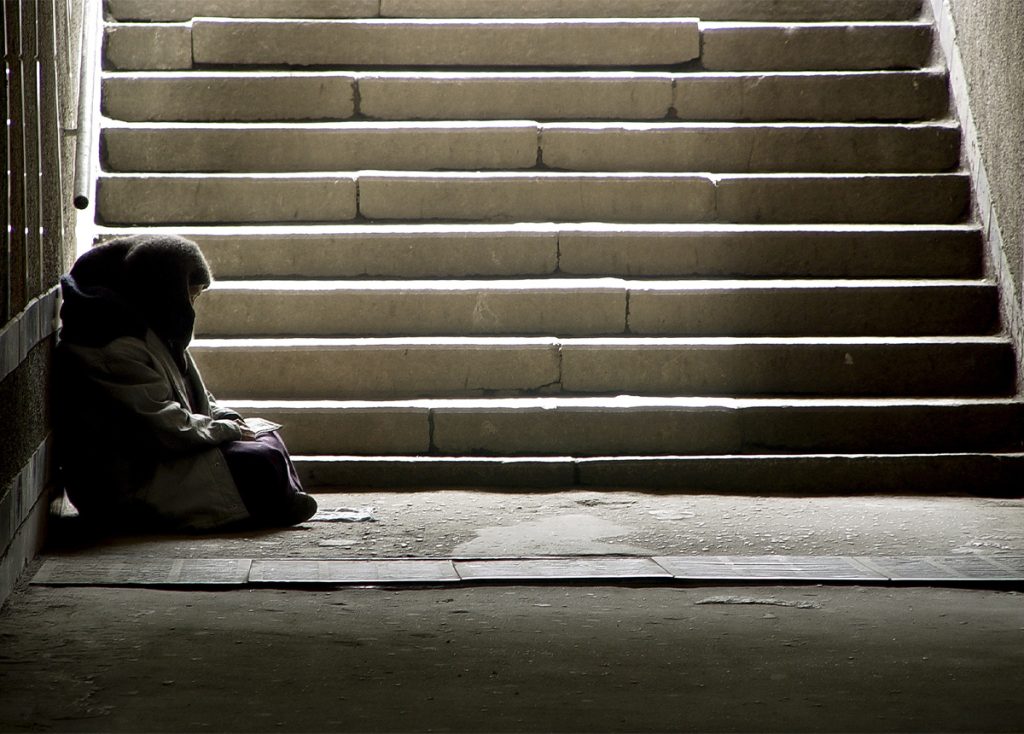
By Paul McDonald
17 February 2022
A looming federal election raises debate on what are the right social policies for the country’s most vulnerable in a pandemic world.
Measured in human cost and human impact, there are a couple of policy areas from my vantage point as chief executive of Anglicare Victoria – the state’s largest provider of services to vulnerable families and children – that an incoming federal government needs to turn their minds to.
Housing relief
At one point earlier this year there were more than 230 homeless families, including more than 450 children, residing in the Victorian government’s Homeless Hotels initiative. These families found themselves homeless as a result of a downturn in the economy, domestic violence, or rising rents.
A national policy and fund to help Australia’s homeless families should be front of mind for any federal government. Rents are booming and more families are finding themselves in housing stress. It’s not sustainable.
Social housing is one of the most effective ways to help people caught by the rental squeeze, which also creates thousands of construction jobs. The Council to Homeless Persons is calling on the federal government to build 25,000 new social housing units per year, along with increasing the level of Commonwealth Assistance.
Read more: Ask what your candidates will do for the vulnerable: Anglicare Victoria
The Victorian government has stepped up with its $5.3 billion Big Housing Build. But it won’t do the whole job and to date the Morrison government is nowhere to be seen. One less submarine and a few thousand more homes seems like a good trade to me. At a federal level they need to own this growing social policy crisis more.
The Grattan Institute recently proposed a social housing future fund that basically would involve an upfront investment, the interest from which could be used to build thousands of new social housing units ever year at no additional cost to the government’s bottom line.
A better deal for young people
The lives of young people across the country were smashed by the COVID-19 pandemic. All the things they held dear were cancelled: social events and concerts, group learning at school, casual jobs and even just hanging out with their friends. Helping young people recover will not be easy.
The government’s release of Australia’s Youth Policy Framework last year was a good start. But deep listening to the voices of young people needs to be better embedded in government decision-making processes, so that their views are truly represented.
Read more: Our young people are suffering, we need training to help them
A more comprehensive youth strategy is needed, to help an anxious generation recover their mojo and transition confidently into adulthood. The current youth benefits paid by the government are also far below the poverty line, which is a recipe for long-term disadvantage. Further, until recently foster care was cut off by the state at the age of 18. It was too young. Around half those leaving care at this age would be homeless and jobless within 12 months. From the beginning of 2021 the Andrews government offered extended support to the age of 21 for all young people in the state care system following lobbying by the Home Stretch campaign. It ultimately saves governments money. It’s a no brainer.
The campaign has been adopted by most states and territories in some form, but national coordination would see Queensland and NSW come into line and create a truly national guarantee of continued care to 21 years.
And to the refugees locked in the Park Hotel
Finally, I cannot get those locked up in Carlton’s Park Hotel out of my thoughts. Most have legitimate refugee status yet some have been in that same hotel for near on five years. One young man was detained when he was 15 and he is now 24 and locked up in the Park Hotel. We would be objecting loudly if this was happening in another country.
The first thing a new Prime Minister should do is release them – whether to “community detention” on temporary visas to live in the community, or to New Zealand, whose government has agreed to accept them all. Until then, as members of the Anglican community we should be writing to the Prime Minister seeking their immediate release.
Read more: We need to talk about the kind of society Australia wants to be
Good luck as you assess the candidates. This time let’s approach our decision bottom up: Ask your candidates what they will do for the country’s most disadvantaged and vulnerable to inform your vote.
Paul McDonald is chief executive of Anglicare Victoria.







One Response